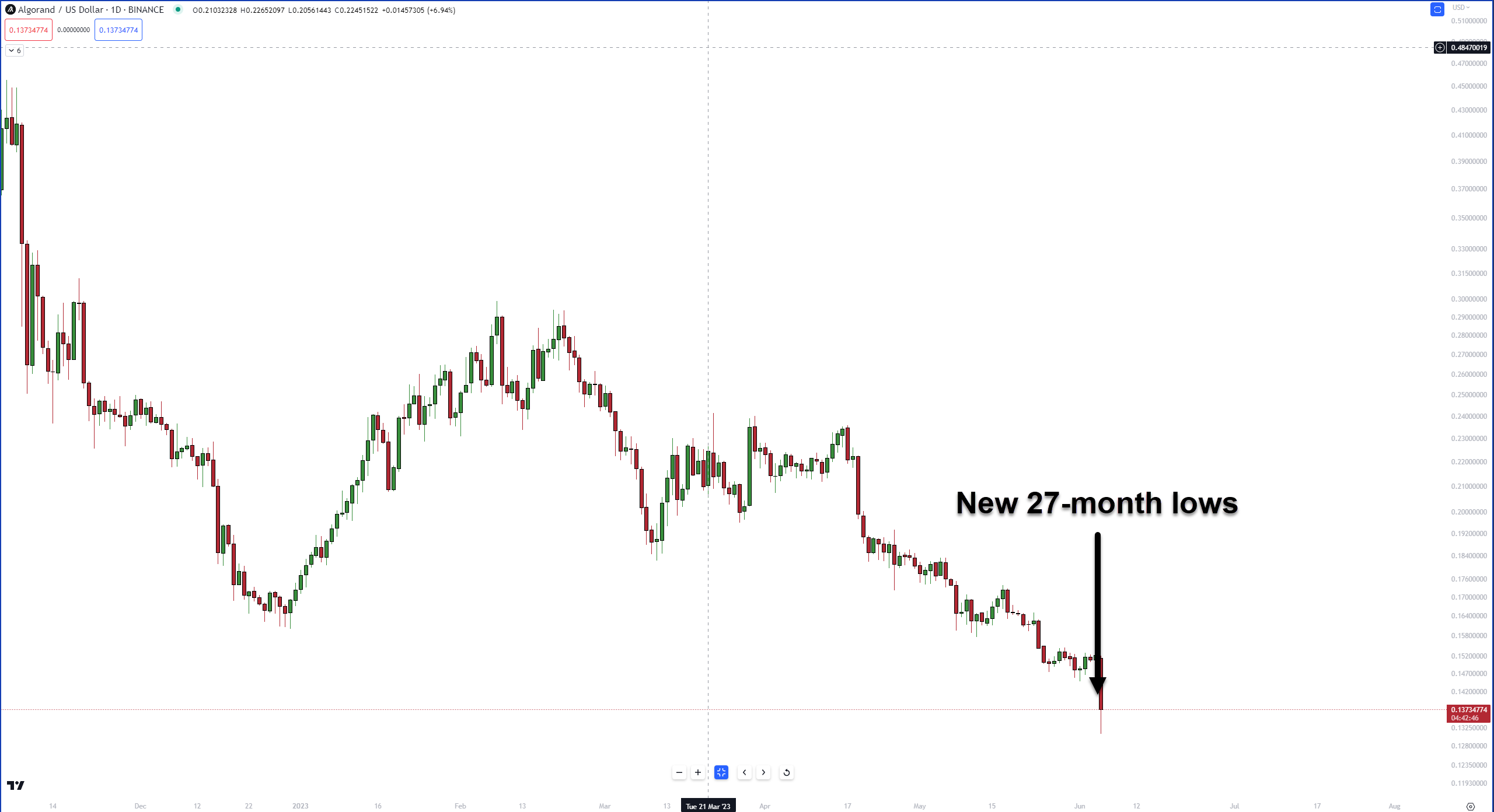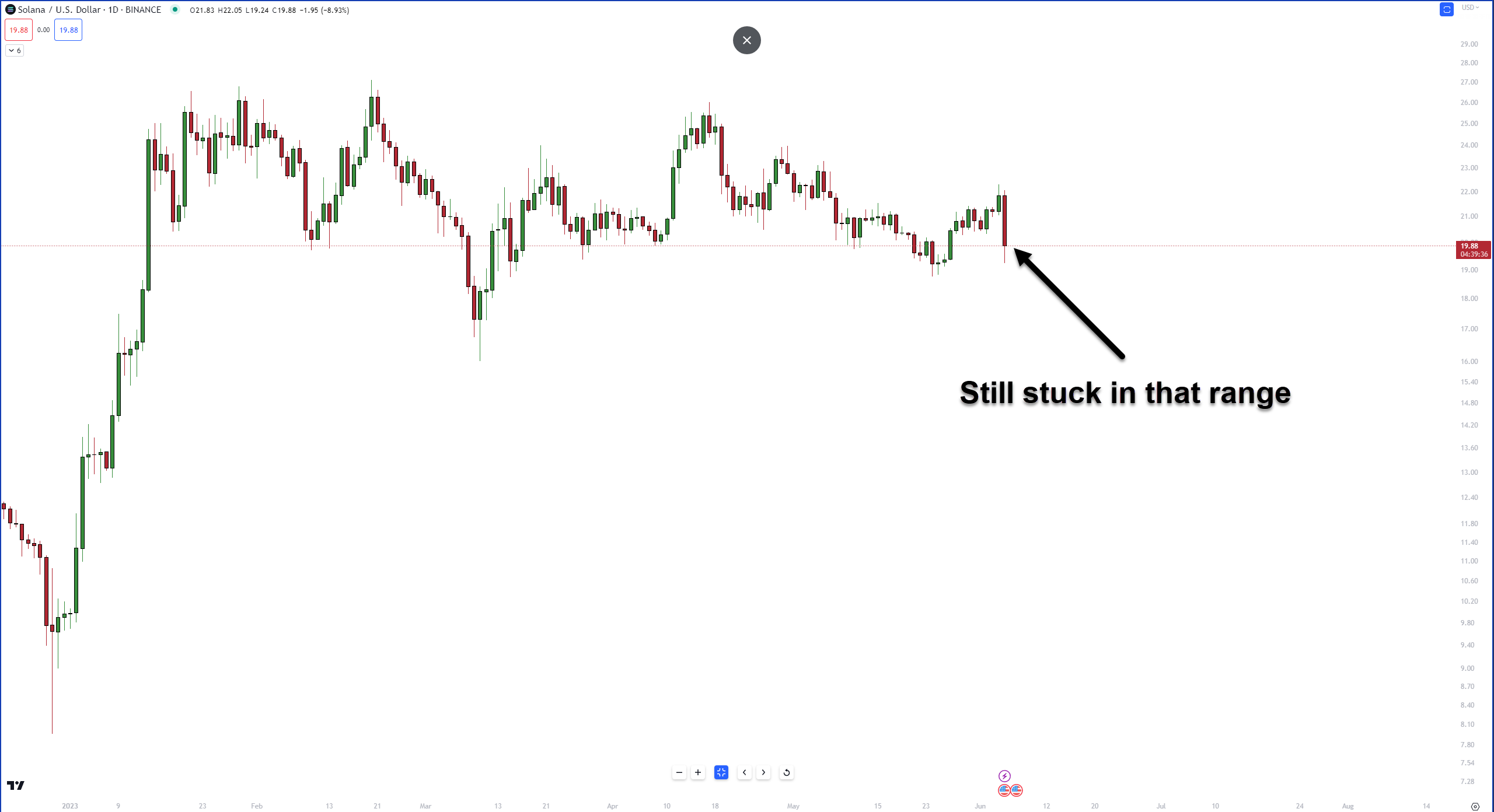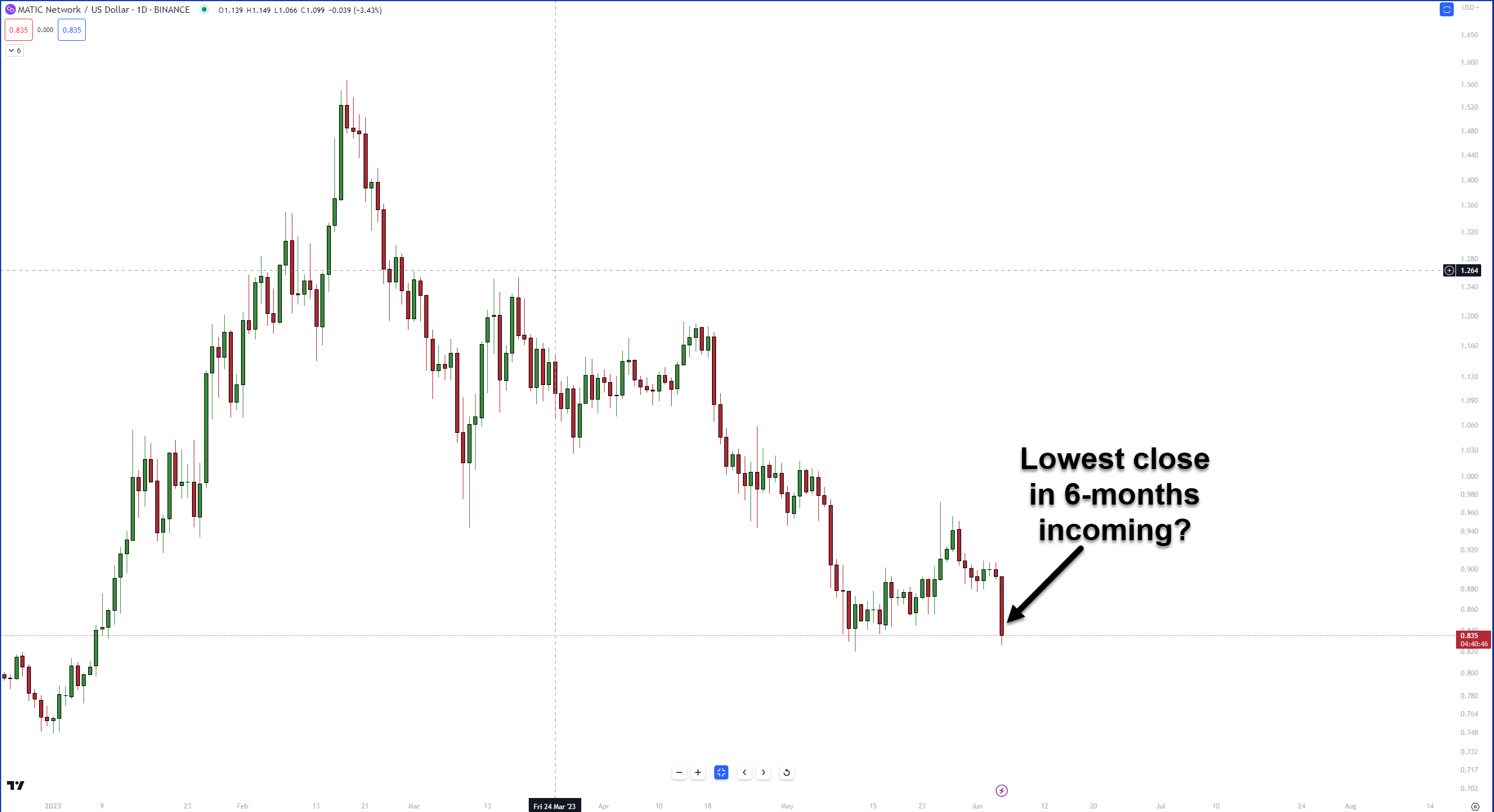Algorand (ALGO)

The SEC asserts that Algorand ($ALGO) should be considered a security based on the following reasons, as stated in their filing:
Founders and Development: Algorand is a blockchain protocol founded by Silvio Micali. The consensus algorithm used by the Algorand blockchain is called “pure proof-of-stake,” where users’ influence on block selection is proportional to their stake in the system. This suggests a centralized authority in the development and operation of the protocol.
Token Sale: The Algorand Foundation conducted an initial token sale in 2019, selling 25 million ALGO tokens at $2.40 each and raising approximately $60 million. The promotion of the token sale, along with refund policies tied to the potential growth and value of ALGO, indicates an investment expectation from buyers.
Management Entities: Algorand is managed by the Algorand Foundation and Algorand, Inc. These entities collaborate on projects and initiatives for the Algorand community, with the foundation owning a significant number of ALGO tokens and participating in governance and reward structures.
Use of Funds: Proceeds from the token sale and ongoing distribution programs have been used to fund the development, growth, and ecosystem support of the Algorand protocol. This further supports the expectation of profit for ALGO holders based on the efforts of the management entities.
Marketing and Development Efforts: Public statements and promotion of the Algorand protocol by Algorand, Inc. and the Algorand Foundation emphasize their technical expertise, partnerships, and initiatives to attract users and developers to the Algorand ecosystem. These statements contribute to the perception of ALGO as an investment tied to the protocol’s success.
Considering these factors, the SEC argues that ALGO qualifies as a security under the Howey Test due to the investment expectation, central authority involvement, and efforts to increase demand and value for Algorand.
Solana (SOL)

The U.S. Securities and Exchange Commission (SEC) has raised allegations against Solana Labs, Inc. stating that $SOL, the native token of the Solana blockchain, should be considered a security. The SEC’s filing presents multiple reasons for its stance, including:
Fundraising via token sales: The SEC mentions that Solana Labs raised a significant amount of funds through SOL token sales. Between 2018 and 2020, the company sold approximately 177 million SOL, generating over $23 million. These funds were raised through a Simple Agreement for Future Tokens (SAFT) process, which Solana Labs filed with the SEC, claiming exemption from registration under Rule 506(c) of Regulation D under the Securities Act.
Perception of SOL as an investment: The SEC argues that public information disseminated by Solana Labs led purchasers of SOL to reasonably view SOL as an investment and expect to profit from Solana Labs’ efforts to grow the Solana protocol. This growth was expected to increase the demand for, and therefore, the value of, SOL.
Use of funds raised through SOL sales: According to the SEC, Solana Labs publicly declared that proceeds from SOL sales would be used to fund the development, operations, and marketing efforts of the Solana blockchain. This, in turn, would potentially increase the demand for SOL, given its integral role in the blockchain’s operation.
Promotional activities to increase demand for SOL: Solana Labs actively engaged in various promotional activities to drive participation in its network and increase demand for SOL. These activities included maintaining a robust online presence with a podcast, a YouTube channel, and several social media platforms.
Allocation of SOL tokens: The SEC highlights that of the 500 million SOL tokens initially minted, 12.5% were allocated to Solana Labs’ founders, and another 12.5% were allocated to the Solana Foundation, a non-profit organization dedicated to the growth and security of the Solana network.
Token burn mechanism: Solana Labs has marketed the concept of “burning” SOL tokens as a deflationary model to maintain a healthy SOL price. This concept would reduce the total supply of SOL, potentially increasing its price – another factor contributing to the perception of SOL as an investment.
The SEC is therefore arguing that for these reasons, SOL meets the criteria of an investment contract and should thus be considered a security, subject to the regulatory framework for securities.
Polygon (MATIC)

The SEC believes that Polygon’s native token, $MATIC, qualifies as a security for the following reasons, as outlined in their filing:
Founders and Development: Polygon, originally known as Matic Network, was founded in 2017 by Jaynti Kanani, Sandeep Nailwal, and Anurag Arjun, among others. The founders have remained actively involved through “Polygon Labs,” an entity established for the development and growth of Polygon.
Token Characteristics: Polygon issued a fixed supply of 10 billion MATIC tokens. Token holders can earn more MATIC through staking, becoming a validator, or delegating their tokens to other validators.
Token Sales: The entity carried out several rounds of MATIC sales between 2018 and 2019, raising funds for the development of the network. In 2022, Polygon reported raising approximately $450 million through a private sale of MATIC tokens to prominent venture capital firms. Additionally, about 67% of MATIC was reserved to support the Polygon ecosystem, the Foundation, and network operations, and another 20% was reserved to compensate Polygon team members and advisors.
Economic Incentives: The initial whitepaper for MATIC noted that MATIC tokens were expected to provide economic incentives for users to participate in activities or provide services to benefit the entire ecosystem on the Polygon Network.
Expectation of Profit: Information disseminated publicly by Polygon has led MATIC holders to reasonably expect profits from Polygon’s efforts to grow the Polygon protocol. The growth would, in turn, increase demand for and value of MATIC.
Public Statements and Updates: Polygon had routinely announced network growth and developments, as well as when MATIC was made available for trading on different platforms. Polygon’s founders have also regularly promoted the platform on social media, with explicit encouragement for MATIC purchasers to view MATIC as an investment.
Token Burning: Since January 2022, Polygon has been marketing that it “burns” MATIC tokens accumulated as fees, implying a reduction in the total supply of MATIC and leading investors to reasonably view their purchase of MATIC as having potential for profit due to the built-in mechanism to decrease supply and increase the price of MATIC.
Therefore, the SEC’s claim rests on the role of the founders in Polygon’s development and promotion, the economic incentives tied to MATIC, the use of funds raised from MATIC sales for the development and expansion of the Polygon platform, and the expectation of profit by MATIC holders.
